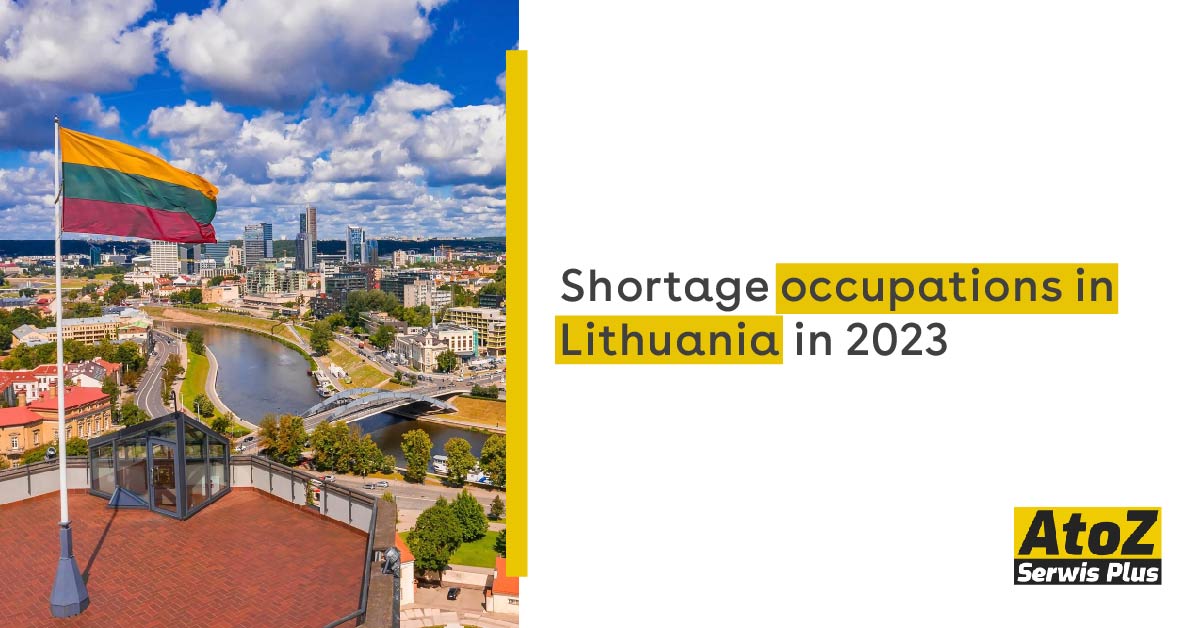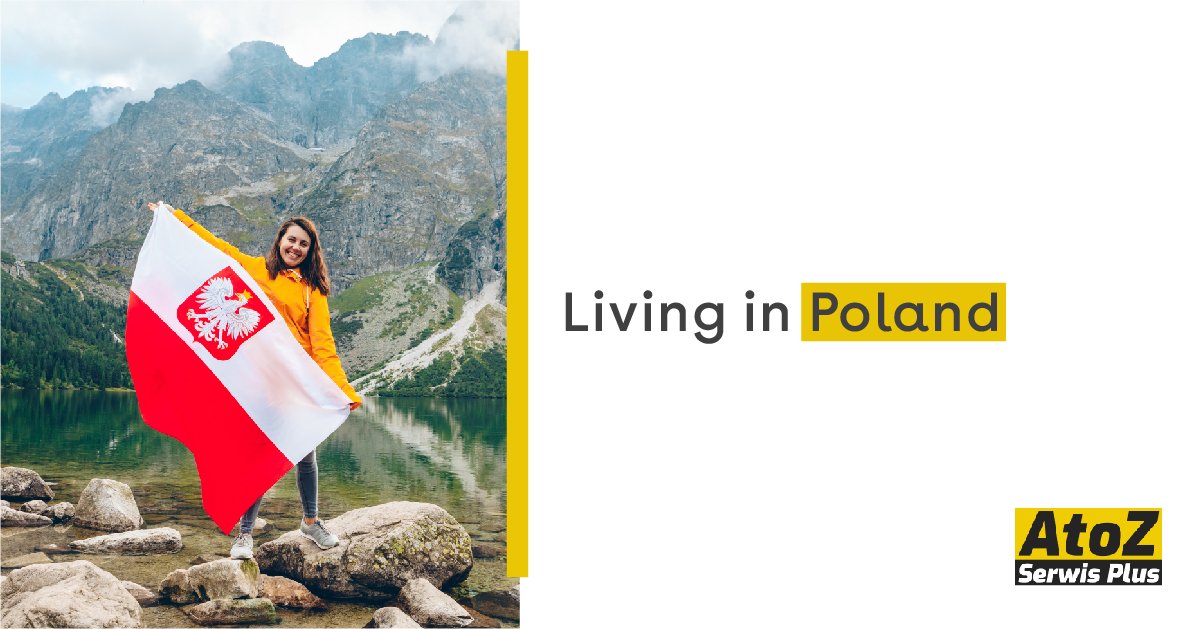

Which country is best for welding jobs?
Are you a skilled welder looking to forge a new path in Europe? The continent offers a treasure trove of opportunities, but knowing where to start can be as challenging as mastering a perfect weld seam. With varying job markets, certification requirements, and industry demands across different countries, finding the best European destination for your welding career can feel like navigating a complex maze.
But don't let uncertainty extinguish your spark! Whether you're drawn to the precision of TIG welding in Germany's automotive sector or the robust underwater welding opportunities in Norway's offshore industry, Europe has a place for your expertise. This guide will illuminate the path to your ideal welding job, exploring the top European countries for welders, factors that influence job prospects, and the specialised skills that can set you apart in this competitive field.
Ready to strike while the iron's hot? Let's dive into the European welding landscape, starting with an overview of the countries that offer the most promising opportunities for welding professionals. We'll then explore the key factors shaping the job market, highlight specialised welding niches across the continent, and equip you with the knowledge to succeed in your European welding adventure.
Top European countries for welding jobs
Germany: Europe's industrial powerhouse
Germany is a prime destination for welders seeking lucrative opportunities in Europe. The country offers many welding jobs across various specialisations with its robust manufacturing sector and advanced automotive industry.
Key industries for welders in Germany:
- Automotive manufacturing
- Aerospace and defense
- Shipbuilding and marine engineering
- Industrial machinery production
Germany's commitment to precision engineering and quality craftsmanship makes it an ideal environment for skilled welders to thrive and advance their careers.
|
Advantages |
Challenges |
|---|---|
|
High salary potential |
German language proficiency often required |
|
Excellent job security |
Strict certification standards |
|
Advanced technology exposure |
Competitive job market |
|
Opportunities for specialization |
High cost of living in major cities |
Norway: High-paying offshore welding opportunities
Norway's oil and gas industry offers some of the most lucrative welding positions in Europe, particularly in offshore operations. The country's extensive coastline and rich natural resources have created a strong demand for skilled welders in marine and underwater environments.
Popular welding roles in Norway:
- Offshore platform welders
- Underwater welders for oil rigs
- Pipeline welders for subsea operations
- Shipyard welders for vessel maintenance and construction
Norway's emphasis on safety and environmental standards ensures that welders working in these challenging conditions are well-compensated and protected.
Netherlands: Growing demand in shipbuilding industry
The Netherlands boasts a thriving shipbuilding sector, making it an attractive destination for welders specializing in marine applications. With its strategic location and extensive port facilities, the country offers diverse opportunities in both construction and maintenance of vessels.
Factors influencing welding job prospects
A. Industry growth and demand
The welding industry in Europe is experiencing significant growth, driven by various sectors such as automotive, construction, and renewable energy. Countries like Germany, France, and the Netherlands are leading the way with robust manufacturing sectors, creating a high demand for skilled welders.
|
Country |
Key Industries |
Growth Rate |
|---|---|---|
|
Germany |
Automotive, Aerospace |
3.5% |
|
France |
Construction, Shipbuilding |
2.8% |
|
Netherlands |
Offshore, Renewable Energy |
4.2% |
B. Salary and benefits
Welding jobs in Europe offer competitive salaries, with variations based on specialization and location. Nordic countries like Norway and Sweden tend to offer higher wages, while Eastern European countries may have lower salaries but a lower cost of living.
- Average annual salary range: €30,000 - €70,000
- Benefits often include:
- Health insurance
- Pension plans
- Paid vacation time
- Training opportunities
C. Work visa requirements
Work visa requirements vary across European countries, with EU citizens having an advantage in terms of freedom of movement. Non-EU citizens typically need to secure a work permit, which may require:
- Job offer from a European employer
- Proof of qualifications
- Health insurance coverage
- Sufficient funds for initial stay
D. Language proficiency expectations
While English is widely used in many international companies, local language proficiency can significantly enhance job prospects. Countries like Germany and France often require a basic understanding of their national languages for day-to-day work and integration.
E. Recognition of qualifications
European countries have different systems for recognizing welding qualifications. The European Welding Federation (EWF) provides standardized certifications that are widely recognized across Europe, improving employability and mobility for welders.
Now that we've explored the factors influencing welding job prospects, let's delve into the specialized welding opportunities available across Europe.
Specialized welding opportunities across Europe
A. Underwater welding in coastal nations
Coastal European nations offer lucrative opportunities for skilled underwater welders. Countries like Norway, the UK, and the Netherlands are hotspots for offshore oil and gas industries, requiring specialized welders for underwater repairs and installations.
|
Country |
Key Industries |
Average Salary Range |
|---|---|---|
|
Norway |
Oil & Gas, Shipbuilding |
€70,000 - €120,000 |
|
UK |
Offshore Wind, Marine |
€60,000 - €100,000 |
|
Netherlands |
Offshore Energy, Port Maintenance |
€55,000 - €90,000 |
Underwater welders in these regions often work on:
- Oil rig maintenance
- Submarine pipeline repairs
- Offshore wind turbine installations
- Shipyard repairs
B. Pipeline welding in Eastern Europe
Eastern European countries are experiencing a boom in pipeline construction, creating a high demand for skilled pipeline welders. Countries like Poland, Romania, and Bulgaria are at the forefront of this trend.
Key projects driving demand:
- Natural gas pipelines
- Oil transportation networks
- Cross-border energy infrastructure
C. Aerospace welding in France and UK
The aerospace industry in France and the UK offers specialized welding opportunities with companies like Airbus and BAE Systems. These roles require precision welding techniques and often involve working with exotic materials.
D. Automotive welding in Germany and Italy
Germany and Italy, known for their automotive industry, provide excellent opportunities for welders specializing in vehicle manufacturing. Companies like BMW, Mercedes-Benz, and Fiat Chrysler are always on the lookout for skilled welders.
Key welding techniques in demand:
- Resistance spot welding
- Laser welding
- MIG/MAG welding for aluminum components
These specialized welding opportunities across Europe offer not only high salaries but also the chance to work on cutting-edge projects. Next, we'll explore the skills and certifications needed to succeed in these diverse welding careers.
Skills and certifications for success
Essential welding certifications
To succeed in the European welding job market, obtaining recognized certifications is crucial. The most important certifications include:
- European Welding Federation (EWF) certifications
- International Welding Engineer (IWE)
- International Welding Technologist (IWT)
- International Welding Specialist (IWS)
These certifications demonstrate your expertise and increase your employability across Europe. Here's a comparison of their requirements:
|
Certification |
Education Level |
Experience |
Exam Type |
|---|---|---|---|
|
IWE |
Engineering degree |
2 years |
Theoretical & practical |
|
IWT |
Technical diploma |
3 years |
Theoretical & practical |
|
IWS |
Vocational training |
4 years |
Practical focused |
Advanced techniques and specializations
Mastering advanced welding techniques can set you apart in the competitive European job market. Some in-demand specializations include:
- Underwater welding
- Aerospace welding
- Nuclear welding
- Robotic welding
Safety training and compliance
European employers prioritize safety in welding operations. Key safety certifications include:
- NEBOSH International General Certificate
- IOSH Managing Safely
- EU-OSHA Healthy Workplaces campaigns
Language skills for international work
While English is widely used in the industry, learning the local language can significantly boost your job prospects. Consider:
- Taking language courses before relocating
- Using language learning apps for daily practice
- Enrolling in technical language classes specific to welding terminology
Now that you're equipped with the necessary skills and certifications, let's explore how to navigate the European job market effectively.
Navigating the European job market
Online job portals and resources
When searching for welding jobs in Europe, online job portals are invaluable resources. Popular platforms like Indeed, LinkedIn, and EURES (European Job Mobility Portal) offer extensive listings for welding positions across the continent. These sites allow you to filter jobs by location, experience level, and specialization, making your search more efficient.
|
Job Portal |
Features |
Specialization |
|---|---|---|
|
Indeed |
Company reviews, salary info |
General job listings |
|
|
Professional networking |
Career-focused opportunities |
|
EURES |
EU-wide job matching |
Cross-border employment |
Networking and industry events
Attending industry events and trade shows can significantly boost your chances of landing a welding job in Europe. These gatherings provide opportunities to:
- Meet potential employers face-to-face
- Learn about the latest industry trends
- Discover specialized welding opportunities
- Build a professional network
Recruitment agencies specializing in welding
Many recruitment agencies focus on placing skilled welders in European companies. These agencies often have insider knowledge of the job market and can match your skills with suitable positions. Some notable agencies include:
- Randstad
- Adecco
- ManpowerGroup
Apprenticeship and training programs
For those looking to gain experience or enhance their skills, apprenticeship and training programs are excellent options. Many European countries offer structured programs that combine on-the-job training with classroom instruction. These programs not only provide valuable experience but also often lead to full-time employment opportunities.
Now that you're equipped with strategies for navigating the European job market, you're well-prepared to embark on your welding career abroad. Remember to tailor your approach based on your specific skills and the country you're targeting for employment.
Which Country is Best for Welding Jobs?
Find Out the Top Countries Hiring Welders with High Salaries and Work Visa Opportunities – 2025 Guide
Are you a certified welder looking for better opportunities abroad? Skilled welders are in high demand across many countries due to growing labor shortages in construction, shipbuilding, oil & gas, and metal fabrication industries. Whether you’re from India, Nepal, Bangladesh, the Philippines, or anywhere else – this guide will help you choose the right country and apply directly through official government job portals.
Top Countries for Welding Jobs in 2025
| Country | Why It's Great for Welders | Average Salary (Monthly) | Visa Type |
|---|---|---|---|
| Germany | High demand, Blue Card access, long-term PR opportunity | €2,500 – €4,500 | Skilled Worker Visa / EU Blue Card |
| Poland | Easy work permits, employer sponsorship, growing industry | €1,000 – €1,800 | National Work Visa |
| Netherlands | Modern facilities, good pay, English-speaking work sites | €2,200 – €3,800 | Dutch Work Visa |
| Canada | Immigration pathways for welders via Express Entry and PNPs | CAD $3,500 – $6,000 | Work Permit / PR (Express Entry) |
| Australia | Welder listed in Skilled Occupation List, PR options | AUD $4,000 – $6,500 | Skilled Independent Visa (Subclass 189/190) |
| Sweden | Excellent working conditions, social benefits, high-tech industries | €2,500 – €4,000 | Swedish Work Permit |
| Norway | High pay for offshore welders and pipeline jobs | €3,000 – €5,500 | Skilled Worker Visa |
| Finland | Welcoming skilled tradespeople, simple application process | €2,000 – €3,800 | Residence Permit for Employment |
Where to Apply: Government Job Portals for Welders
| Country | Official Portal | Website Link |
|---|---|---|
| EU (All) | EURES – European Job Mobility Portal | https://ec.europa.eu/eures |
| Germany | Make it in Germany / Bundesagentur für Arbeit | https://www.make-it-in-germany.com |
| Poland | Central Job Portal (Oferty Pracy) | https://oferty.praca.gov.pl |
| Netherlands | Werk.nl | https://www.werk.nl |
| Sweden | Arbetsförmedlingen | https://www.arbetsformedlingen.se |
| Norway | NAV Job Platform | https://arbeidsplassen.nav.no |
| Finland | TE Services / Työmarkkinatori | https://tyomarkkinatori.fi |
| Canada | Job Bank Canada | https://www.jobbank.gc.ca |
| Australia | Workforce Australia | https://www.workforceaustralia.gov.au |
Tips to Apply for Welding Jobs Abroad
-
Prepare a professional CV in English or the required local language.
-
Get your welding certificates (ISO 9606, ASME IX, etc.) verified.
-
Apply directly through government portals or via trusted licensed agencies.
-
Always ensure the job offer includes visa sponsorship and legal work authorization.
-
Avoid scams – never pay for a job offer upfront without verification.
Let AtoZ Serwis Plus Help You Get Started
At AtoZ Serwis Plus, we specialize in connecting skilled workers like welders to trusted employers in Europe and beyond. We handle the job search, visa application, and relocation process to ensure your journey is smooth and legal.
Contact us today to check available vacancies and start your welding career abroad!
Conclusion
Germany stands out as the prime destination for welding professionals in Europe, offering a robust manufacturing sector and numerous opportunities in industries such as automotive, shipbuilding, and aerospace. Other countries like Norway, Sweden, and the Netherlands also present attractive prospects for welders, particularly in sectors like oil and gas, renewable energy, and marine engineering.
To succeed in the European welding job market, aspiring professionals should focus on developing specialized skills, obtaining relevant certifications, and staying updated with the latest technologies. Understanding local labor laws, language requirements, and cultural nuances is crucial for navigating the job market effectively. By capitalizing on these insights and opportunities, welders can forge successful careers across Europe's diverse and dynamic industrial landscape.
Which Country is Best for Welding Jobs?
1. Which country offers the highest salary for welders?
The United States, Norway, and Switzerland offer some of the highest salaries for skilled welders, ranging from $4,000 to $7,000 per month.
2. Which European country is best for welding jobs?
Germany, Poland, the Netherlands, and Sweden are among the best European countries for welding jobs due to high demand and labor shortages.
3. Is Germany a good country for welders?
Yes, Germany has a strong manufacturing and engineering sector and offers excellent pay, work visa options, and long-term residence pathways for welders.
4. Are welding jobs available for foreigners in Europe?
Yes, many European countries hire skilled foreign welders through work permits or skilled labor immigration programs.
5. Which countries have a shortage of welders?
Germany, Canada, Australia, Poland, Norway, and Finland are facing a growing shortage of certified welders.
6. Where can I find welding jobs with visa sponsorship?
Countries like Canada, Germany, the Netherlands, and Australia often offer visa sponsorship for skilled welders.
7. Is Poland hiring foreign welders?
Yes, Poland has a high demand for welders in the shipbuilding, steel, and construction industries and offers work permits for foreign candidates.
8. Which Gulf countries are best for welding jobs?
UAE, Qatar, and Saudi Arabia offer many welding opportunities in oil & gas, construction, and infrastructure projects.
9. What is the average welder salary in Europe?
Welder salaries in Europe range from €2,000 to €4,500 per month, depending on the country, skill level, and experience.
10. Which countries are easiest to migrate to for welders?
Poland, Lithuania, Canada, and Australia are considered among the easiest due to simplified visa pathways and active recruitment of skilled trades.
11. What are the top countries hiring Indian welders?
Germany, Poland, Romania, Canada, and the UAE are actively hiring experienced Indian welders.
12. Can welders get permanent residency abroad?
Yes, welders can apply for PR in countries like Canada, Australia, and Germany after working for a few years and meeting residency conditions.
13. Which country pays welders the most per hour?
Switzerland and the USA offer some of the highest hourly wages, up to $40–$50 per hour for certified welders.
14. Are there welding jobs in Canada for foreigners?
Yes, Canada has multiple welding job opportunities under its Express Entry and provincial nominee programs (PNP) for foreign workers.
15. Can female welders get jobs abroad?
Yes, female welders are welcomed in many progressive countries like Canada, Sweden, and Germany, promoting gender diversity in trades.
16. What qualifications are needed for welding jobs abroad?
Typically, you need welding certification (ISO 9606, ASME, or similar), technical training, and 2–5 years of experience.
17. Is the Netherlands a good place to work as a welder?
Yes, the Netherlands offers attractive salaries, good working conditions, and visa support for skilled welders.
18. Are welders in demand in the UK?
Yes, the UK continues to seek skilled tradespeople, including welders, particularly in infrastructure and energy sectors.
19. Are welding jobs permanent or contract-based abroad?
You can find both—some employers offer long-term contracts with PR options, while others hire welders for short-term projects.
20. Which country is best for pipeline welders?
Canada, the USA, and Saudi Arabia are among the top countries hiring pipeline welders for energy and oil projects.
21. What language is required for welding jobs in Europe?
English is widely accepted in the Netherlands, Germany (in certain roles), and Scandinavian countries. Some countries require basic local language knowledge.
22. Is Australia hiring international welders?
Yes, Australia includes welders on its Skilled Occupation List (SOL), making it easier to apply for work and PR.
23. Can I get a welding job abroad without IELTS?
Yes, countries like Poland and Romania do not require IELTS for most welding jobs. However, English-speaking countries might.
24. What are the best job portals for welders abroad?
EURES (Europe), JobBank (Canada), Seek (Australia), and Make-it-in-Germany are trusted portals.
25. How can I apply for a welding job in Europe?
Prepare your CV, get your certifications, and apply via official job portals or trusted recruitment agencies like AtoZ Serwis Plus.
26. Which visa type is needed for welders in Europe?
A national employment visa or skilled worker visa is usually required for welders.
27. Can welders apply for blue card in Europe?
Yes, experienced and highly paid welders may qualify for the EU Blue Card in countries like Germany.
28. Do employers provide accommodation for welders?
Many European and Gulf employers provide free or subsidized accommodation for foreign welders.
29. Which countries are best for beginner welders abroad?
Poland, Lithuania, and Hungary are good entry points for welders with basic experience.
30. Can welders travel with family on a work visa?
Yes, many countries allow dependents to join welders through family reunion or dependent visa programs.
31. Are welding certifications from India valid abroad?
Indian certificates are accepted, especially when combined with international standards like ISO 9606 or ASME IX.
32. Is Finland hiring foreign welders?
Yes, Finland actively recruits welders for industrial and construction projects, with good salaries and benefits.
33. Can welders work in offshore oil rigs abroad?
Yes, certified welders can work on offshore oil platforms in Norway, Canada, and the Middle East with specialized training.
34. Are welding jobs available through government portals?
Yes, welders can apply via official platforms like EURES (EU), JobBank (Canada), and NAV (Norway).
35. Can AtoZ Serwis Plus help me find a welding job abroad?
Absolutely! AtoZ Serwis Plus specializes in job placements, work permit processing, and relocation support for skilled welders in Europe and beyond.


















